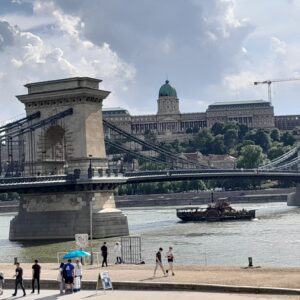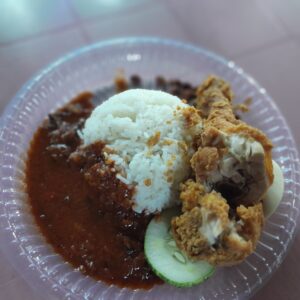I love good chocolate and while in Bocas del Toro, close to the heart of Panama’s cacao region, I jumped at the chance to take the Oreba Chocolate tour. It is run by a village of the Ngobe Bugle tribe whose livelihood is primarily cacao farming. I almost missed the tour completely as I misunderstood where I was to meet the guides. I was waiting in the Bocas marina on the island for the guides and they were waiting for me at the Bocas marina on the mainland . Whoopsy Daisy! Once I realized something was amiss I had a local at the marina call Oreba for me and got the show back on the road. The guides and tour group were kind enough to wait for me and even sent a taxi to the dock to pick me up directly. Great customer service!
Our two guides were both cacao farmers, one English-speaking and the other Spanish-speaking. They gave us walking sticks first thing, a sign this was not going to be a leisurely Sunday stroll. We passed through the fairly rustic village before heading upward, ever upward. We were shown a couple of simple processes the cacao goes though before it is ready to roast. The beans are removed from the pods and placed in wooden bins to ferment. This is to get rid of the white flesh covering the beans. You could feel the heat coming off of the fermenting fruit. After about 8 days of this the beans are placed in a solar dryer for another 8 to 10 days, requiring frequent turning. Finally the beans are ready to be roasted and ground into cacao, the base of chocolate.
On the slippery hike up the rainforest mountain the guides stopped often to discuss the flora and fauna all around us (and give us gringos time to catch our breath). There is a wide variety of fruit trees along the way and they bear fruit at different times of the year so the village always has a mixture of fruit at hand. Many medicinal plants were explained and we also saw a plant with long, strong fibers used for textiles. We saw sloths along the way and super-colourful froggies too.
We stopped at the cacao plantation itself for a longer breather and question and answer session on cacao farming. The farms take a lot of manual labour and attention to produce the cacao. It takes about two years from the time the trees are planted until any cacao is produced. This farm is totally organic and the cacao was thriving. There is a disease which affects the cacao but as long as the farmers vigilantly remove the diseased pods it is not a problem. The farmers did have a problem with other critters wanting the cacao though, namely squirrels, woodpeckers and greediest of all, our cousins the night monkeys. To deal with this they have interspersed fruit trees amongst the cacao which are more appealing to the banditos. The cacao require a fine balance between sun and shade and a lot of time is spent landscaping to achieve this. As we saw, the better the job of landscaping, the better the yield.
The pinnacle of the tour, literally and figuratively, was when we arrived at a roasting station above the cacao fields. Two local women showed us the roasting process and then how to grind the roasted beans into pure cacao paste. They ground it on a giant rock with just the right indentations for the task. It has been in use since ancient times. Now was tasting time!!! First up was the cacao fruit which is the bit of sweet white pulp around the bean. Next was the raw, dried cacao beans, then the roasted cacao beans. Finally the women melted the paste and mixed it with a little sugar and milk for fresh as could be chocolate. It all tasted great but the chocolate was fantastic. Two Swiss girls were on the tour, serious chocoholics, and they proclaimed this the best chocolate ever, high praise indeed. The chocolate was a welcome jolt of energy for the trek back down the mountain.
Back at the village we were treated to a local meal of chicken and the leaves and starchy root of a plant we were shown along the hike up. The plant leaves were just like spinach and were the star of this simple but tasty meal. We also were given some chocolate to take home and there was a small stand with cacao, chocolate and local textiles for sale.
I really enjoyed this tour and wish the Oreba group much prosperity. And please keep that great organic chocolate flowing!







